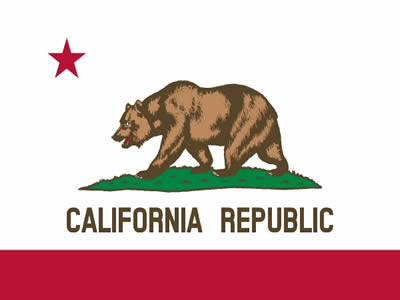A group of six powerful tribes in California have issued an open letter, officially announcing their opposition to AB 167, a measure to legalize and regulate online poker in the state. In the letter addressed to Reggie Jones-Sawyer, the Assemblyman who authored the bill, the coalition of tribes urges voting against AB 167 “or any similar measure” because the bill is “fatally flawed”.
The letter was signed by the Agua Caliente Band of Cahuilla Indians in Palm Springs, the Barona Band of Mission Indians in Lakeside, the Lytton Band of Pomo Indians near San Francisco, the Pechanga Band of Luiseno Indians, the Viejas Band of Kumeyaay Indians of Alpine and the Yocha Dehe Wintun Nation located near Sacramento. These six tribes, as well as the Sycuan Band of the Kumeyaay Nation, have long been opposed to increased regulation of online poker. The Sycuan Band, which did not sign the letter to Reggie Jones-Sawyer, sent a separate letter to the Assemblyman that echoed similar concerns.
The two issues at the core of the tribes’ letter are the bill’s proposal to allow horse racing associations to operate online poker sites as well as the prohibition of so-called “bad actors” with “tainted assets”. The coalition of tribes believe that their years of operating casinos and other gaming locations better equipped than other organizations to conduct responsible gaming on the internet. The tribes are particularly wary of legalizing gaming at horseracing facilities, and cite recent elections where 84% of voters were opposed to such measures.
The tribes’ letter also emphasized recent rulings by the Department of Justice against some online poker operators for defrauding players of over $300 million. It is the position of the tribes that only provably trusted gaming operators, such as themselves, should be allowed to offer legal California online poker.
The most contentious issue at stake is whether or not the proposed legislation would prohibit the company PokerStars from operating any future online poker websites. Although PokerStars has never been convicted of violating any state or federal statutes, it recently acquired the firm Full Tilt, which can be considered a “bad actor” after its website was seized and shut down by the Federal Bureau of Investigation. Full Tilt had its gaming license revoked in 2011 but its assets now belong to PokerStars, which is seeking to operate an online poker website under the proposed AB 167 bill. In the open letter to Assemblyman Jones-Sawyer, the tribes emphasize that Nevada law contains strict regulation against known bad actors, and urge the Assemblyman not to include any legislation without similar protection for California.
The open letter to the Assemblyman also emphasizes the tribes’ contributions to the California economy, crediting themselves for creating tens of thousands of jobs. It is the tribes’ position that legislation such as AB 167 would pave the way to increased competition in the market, thus causing friction and turmoil amongst existing operators, putting the local economy at risk. They further emphasized that expanding gaming operations outside of tribal control could potentially violate several state treaties with the tribes.
Agua Caliente Chairman Jeff Grube and Pechanga Chairman Mark Macarro also gave statements to the media reflecting similar beliefs about the bill, and vowed to oppose AB 167. Currently, California law prohibits all forms of state based online poker. Proponents of AB 167 hope to increase state revenues by 10 million dollars by offering four-year, renewable licenses to operators of legal online poker sites.

